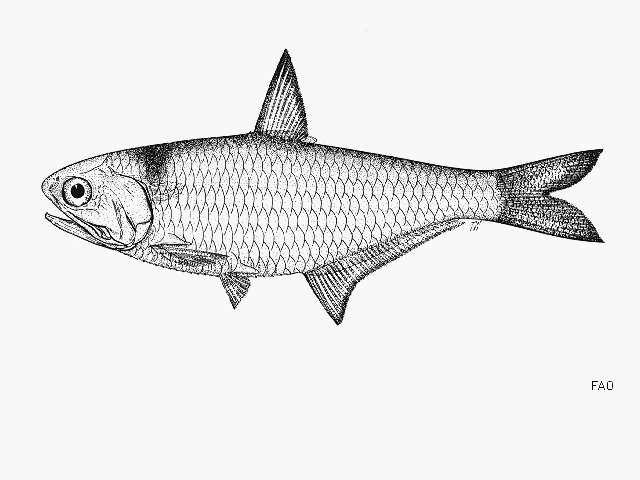| Engraulidae (Anchovies), subfamily: Coiliinae |
| 13.8 cm SL (male/unsexed) |
|
pelagic-neritic; brackish; marine; depth range 0 - 50 m |
| Western Pacific: Australia (northern coasts from Onslow east to Gulf of Carpentaria; and eastern coasts from Brisbane south to 30°S, but presumably to the north also) and Papua New Guinea. |
|
Dorsal spines (total): 0-0; Anal spines: 0-0; Anal soft rays: 30-34. Belly with 14 to 16 + 8 or 9 = 22 to 25 keeled scutes from isthmus to anus. Maxilla short, reaching to hind border of pre-operculum; first supra-maxilla short, about half length of second. Pseudobranch very short. A diffuse saddle on nape; no dark blotch behind gill opening. |
| Presumed marine, pelagic, coastal, but also estuarine, thus tolerating lowered salinities. More data needed. |
|
Least Concern (LC); Date assessed: 17 July 2017 Ref. (130435)
|
| harmless |
Source and more info: www.fishbase.org. For personal, classroom, and other internal use only. Not for publication.
